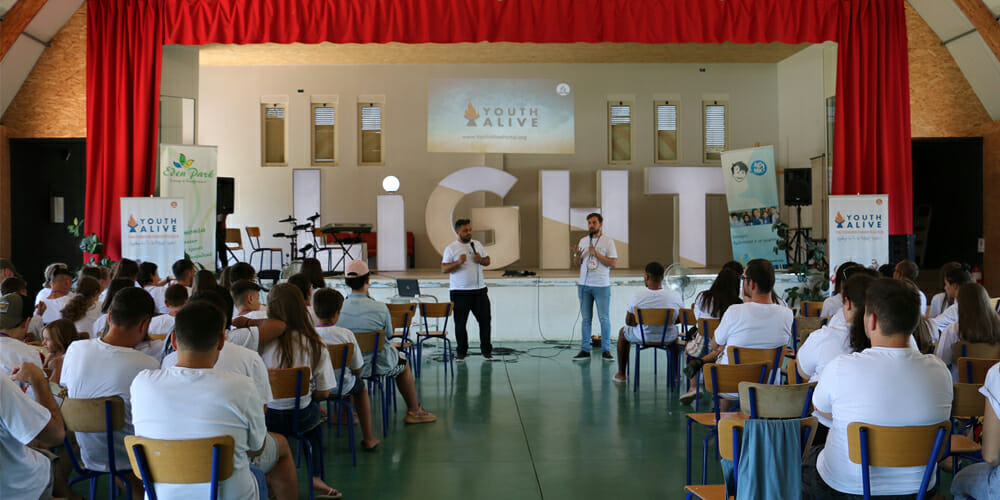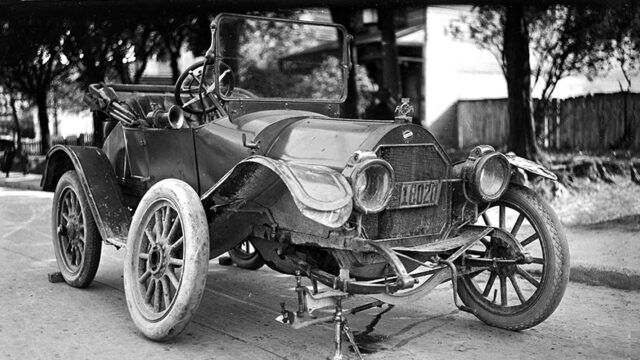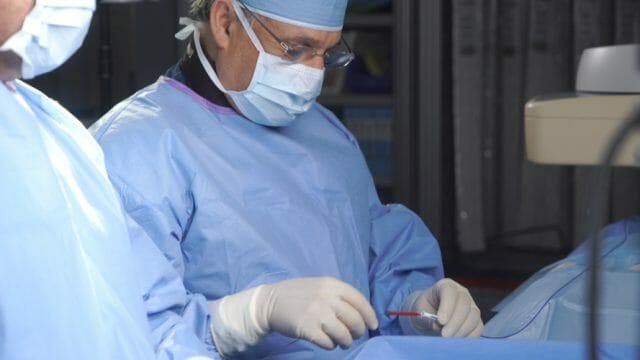In Albania and Lithuania, pilot discipleship event empowers youth for increased engagement.

How can adolescents and young adults make healthy choices in contemporary society?
To discuss issues like this, 105 teens, young adults, and leaders participated in a pilot project of Youth Alive, August 13-18, 2019, in Tirana, Albania, with a second training event in Klaipėda, Lithuania, August 19-24.
Youth Alive is a youth discipleship initiative designed to build resilience in teens and young adults by inspiring and equipping them to make healthy choices. The program is coordinated by the Seventh-day Adventist Church’s Adventist Health Ministries, based in the United States, and is run in partnership with the Trans-European Division church region.
The event is divided into two parts, with initial training for leaders, who are then joined by adolescents and young adults for a Youth Alive Congress, leaders shared.
At the pilot events in Albania and Lithuania, after specialists lectured about physical, mental, and spiritual health, participants were encouraged to reflect on important issues such as the need to establish healthy relationships without abuse; the risk posed by different types of addiction (including technology, harmful substances, and pornography); and the psychological, physiological, and spiritual symptoms that risk behaviors entail. This included the opportunity to meet in small groups, called “Friendship Groups,” in which participants discussed the topics presented by the speakers under the guidance of a leader and then engaged in practical activities.
Positive Feedback
“I liked everything; it was super fun. I learned about sexuality, depression, how to be happy, and how to choose the right things,” says Joana Hallkaj, a 13-year-old participant.
Leo N. España, president of the Albanian Mission and pastor of the Tirana Central Adventist church, sees the project as extremely relevant since “teens and young people are the future of our church, as they will become future parents and church leaders.”
España added, “We are very happy to be part of the pilot project of Youth Alive in Albania.” He explained that the project provides Christ-centered guidelines for them to foster a healthy life, free from addictions, including the essential elements in the development of their character. “I enjoyed seeing our young people build bonds through their friendship groups and pray for each other,” he said.
“Besides developing many recreational activities, the project includes group dynamics that helps them to connect in a deeper way with themselves, others, and with God. There is also a very important part of the project that includes getting involved in community services. This can be a way of planting new churches,” said Juliana Ortolan, project leader in Korçë.
In Lithuania, some of the leaders and participants organized a visit to a nearby retirement home and held a concert in the backyard, which had residents saying they were pleasantly surprised and happy to be visited by the youth.
Some of the young people also went to the town center to share the Adventist health message. They offered to swap cigarettes for apples and invited people to a smoking cessation program. Another group sang hymns at their local hospital and handed out magazines. Residents said they were delighted and asked for such programs in other cities as well.
Increasing Implementation
While piloted in Albania and Lithuania, Youth Alive will soon be implemented in other places. Research into the effectiveness of Youth Alive is being undertaken by Duane McBride, director of the Institute for the Prevention of Addictions and research professor of sociology at Andrews University in the United States. This monitoring will be carried out through a risk-behavior tracking questionnaire, allowing an assessment of behavioral changes during the years of the project’s implementation.
The pilot of the Youth Alive project was the first of its kind anywhere in the world. However, as Katia Reinert, Adventist Health Ministries associate director and coordinator of the Youth Alive program, points out, it is a new approach to a program created many years ago. “The church created the project as a way of engaging youth and adolescents, since they are more open to risky behaviors at this stage of their lives,” she said.
While the project in its original form had been used for many years around the world, it needed adapting to ensure relevance to modern culture and youth today.
Albania Mission youth director Delmar Reis said he believes that “the project will be relevant in Albania and can also be applied even more globally through local churches, schools, and communities.”
Reinert said she sees this project as an opportunity to help church growth and the development of discipleship. “We desire that Youth Alive not only disciples young Adventists but that its holistic message may influence the local community, empowering young people to lead and be active in mission by building resilience and living a happier and healthier life,” she said.
Parengė Dovilė Bakonytė contributed to this report.
The original version of this story was posted on the Trans-European Division news site.








